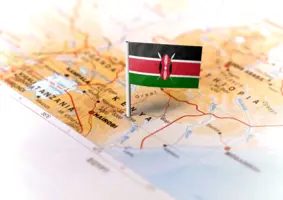Kenya’s Tax Appeals Victory Signals Robust Defense of Taxpayers’ Rights
On May 9, 2025, the Tax Appeals Tribunal in Nairobi delivered a landmark ruling in Diocese of Nyeri Trustees vs. Commissioner of Legal Services & Board Coordination (TAT Appeal No. E1147 of 2024), a case masterfully argued by MGW Advocates LLP. The Tribunal set aside a Kenya Revenue Authority (KRA) demand for Kshs. 8,600,551 in VAT liability, migrated from the Legacy system to iTax, covering August 2011 to December 2014. This victory not only vindicates the Diocese of Nyeri Trustees but also reinforces the constitutional and statutory protections for taxpayers against arbitrary tax demands. It underscores the critical role of legal advocacy in safeguarding fair administrative action and highlights the need for systemic reforms to prevent abuse in tax administration. The Case: A Battle Over Unlawful Tax Demands The Diocese of Nyeri Trustees, a church-based entity registered in 1959 with tax obligations since 1993, faced a KRA demand on June 25, 2024, for Kshs. 8,600,551 in alleged VAT arrears from August 2011 to December 2014. The demand stemmed from ledger balances migrated from KRA’s outdated Legacy system to the iTax platform. The Diocese, represented by MGW Advocates LLP, objected on July 16, 2024, arguing the demand was time-barred and procedurally flawed. KRA’s Objection Decision on September 13, 2024, upheld the demand, prompting an appeal to the Tribunal on October 11, 2024. MGW Advocates LLP built a compelling case, arguing that KRA’s demand violated the repealed VAT Act, 2013 and the Tax Procedures Act, 2015. They contended that the demand, issued over nine years after the relevant tax periods, exceeded the five-year statutory limit for amending assessments under Section 46(4) of the VAT Act and Section 31(4)(b) of the Tax Procedures Act. The firm further highlighted KRA’s failure to serve a notice of amendment, denying the Diocese its right to object under Section 50 of the VAT Act. The demand’s lack of specificity on tax periods and reliance on a Public Notice issued after the demand (July 31, 2024) violated fair administrative action under Article 47 of the Constitution and Section 4(3)(a) of the Fair Administrative Action Act. Tribunal’s Ruling: A Triumph for Legal Precision The Tribunal, in a unanimous decision on May 9, 2025, ruled in favor of the Diocese, setting aside KRA’s Objection Decision. The judgment addressed three key issues: The Tribunal allowed the appeal, set aside the KRA’s decision, and ordered each party to bear its own costs, delivering a resounding victory for the Diocese and taxpayers at large. Broader Implications: Protecting Taxpayers’ Rights This ruling, driven by MGW Advocates LLP’s meticulous legal strategy, has far-reaching implications for Kenya’s tax administration and judicial oversight: • Statutory Limits Upheld: The decision reinforces the five-year limit for tax assessments and record retention, protecting taxpayers from demands for outdated liabilities. It compels KRA to act promptly and within legal timelines, preventing the resurrection of stale claims.• Fair Administrative Action: By invoking Article 47 and the Fair Administrative Action Act, MGW Advocates LLP highlighted KRA’s procedural lapses, such as inadequate notice and retrospective application of the Public Notice. This sets a precedent for demanding transparency and fairness in tax administration.• Challenging Arbitrary Demands: The case exposes vulnerabilities in KRA’s system migration processes, particularly the Legacy-to-iTax transition. MGW Advocates LLP’s success underscores the need for taxpayers to challenge unclear or untimely demands, ensuring KRA adheres to statutory processes. The Role of Legal Advocacy MGW Advocates LLP’s triumph demonstrates the power of skilled legal representation in holding public institutions accountable. Their strategic use of statutory provisions, constitutional rights, and judicial precedents like Republic vs. KRA Ex-Parte Cooper K-Brand Limited (2016) and Export Trading Company vs. KRA (2019) exposed KRA’s procedural and legal errors. This case exemplifies how legal advocacy can protect vulnerable entities, like religious organizations, from bureaucratic overreach, ensuring justice and fairness. A Call for Reform The Tribunal’s ruling signals the need for systemic reforms: • KRA Process Improvements: KRA must ensure timely, specific, and statutorily compliant tax demands, with clear communication during system migrations. • Judicial Vigilance: Courts and tribunals should adopt fair administrative action principles to dismiss baseless claims swiftly, protecting public interest advocacy.• Legislative Action: Parliament must enact legislation that safeguard tax payers rights and further strengthen the taxpayer charter as currently captured by the KRA Act, which is weak and ineffectual. Conclusion The Diocese of Nyeri Trustees victory, secured by MGW Advocates LLP, is a beacon for taxpayers facing arbitrary tax demands and advocates challenging systemic wrongs. It reaffirms Kenya’s constitutional commitment to fair administrative action and the rule of law. As Kenya strives to be a democratic leader in Africa, its institutions must protect those who uphold transparency, whether through tax appeals or whistleblowing. The Attorney General, Parliament, and KRA must act swiftly to implement reforms, ensuring no taxpayer or truth-teller faces undue legal burdens. This ruling is not just a win for the Diocese but a clarion call for justice, accountability, and reform.
Kenya’s Tax Appeals Victory Signals Robust Defense of Taxpayers’ Rights Read More »





